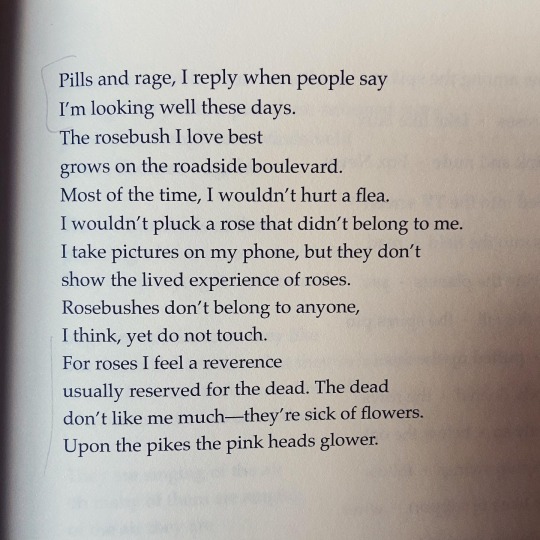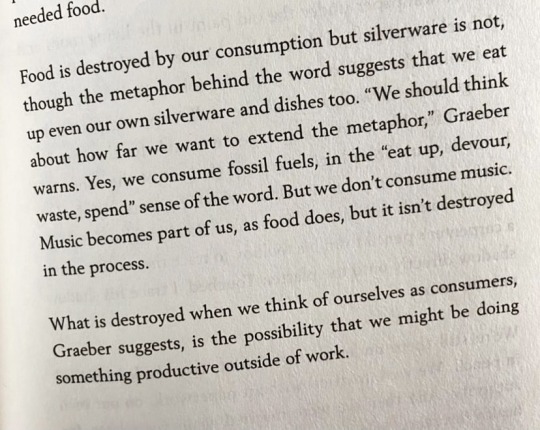#frankenstein didn’t seem surprised that the body on the operating chair was gone
Text
ngl I expected the newly awakened creature and frankenstein to be trading some very different fluids but a tear works too ig
#log.#penny dreadful#mfs legitimately looked like they were about to kiss#all jokes aside. the tear thing was beautiful#but I have so many questions#frankenstein didn’t seem surprised that the body on the operating chair was gone#but had a whole rapture at finding that the creature worked all right?#what is going onnn I can’t watch the next ep rn
3 notes
·
View notes
Text
Favorite Reads of 2020

In this year of slowness, thank god for books to make the world a little larger again. I read several classics for the first time—Shelley’s Frankenstein and Rachel Carson’s Silent Spring and Bernadette Mayer’s Midwinter Day—all of which felt important to return to the source material, to see how these books shaped those that came after them. And I delved into new books from favorite authors whose words I will always seek out—like Kelly Schirmann’s The New World and Heather Christle’s The Crying Book—and I branched out into mystery and romance books because they kept pages turning and tidied everything up so neatly at the end, which if not my usual fare, was sorely needed in this strange year. But since I do love a list, here are the books that sung to me / inspired me / shaped me:
1. Exquisitely told and inventive in form, Women Talking by Miriam Toews centers on a group of Mennonite women in South America who discover they're being drugged and raped during the night by the men in their community. While the men are away, the women meet to decide whether they will stay and forgive their attackers, as their community’s religious leaders ask them to, or leave the colony and start anew. Their conversation over the course of two days questions the role of women, what freedom and forgiveness really mean, how to fulfill one’s calling as a woman, mother, and believer, whether one must choose one thing over another, and whether staying or leaving carries the greater risk. It’s a thoughtful and creative approach to hard questions and the complicated reasons why there’s never a right answer.
2. Ilya Kaminsky's collection, Dancing in Odessa, was one of the first books of contemporary poetry I ever read, lent to me by a friend in college, and I remember being stunned at what poetry could be and do. Deaf Republic stuns in the same way. The poems are incredibly cinematic, telling the story of an occupied town and its people and a couple who fall in love. When a young, deaf boy is shot by the soldiers, the entire town pretends deafness in rebellion, finding excuses to not understand the soldiers. They bear witness to the boy’s death and honor his life. Though a fictional town, the call to political action, to really see those who are being oppressed and stand for justice with them, is resonant for any time and place. Plus, Ilya writes the most beautiful love poems.
3. Another cinematically-inclined poetry book is GennaRose Nethercott’s The Lumberjack’s Dove. In this long poem/myth/fable, a lumberjack accidentally cuts off his hand, which turns into a dove, and then a story parts ways. The lumberjack is not just a lumberjack and the hand-turned-dove is not just a hand-turned-dove, and the story visits both an operating room and a witch, and the story, of course, is one you've heard before and one that brings surprise and wonder to the telling. I simply adored it.
"Living creatures believe they own something as soon as they love it. They refuse to believe otherwise, no matter how many times a beloved vanishes."
4. I fell in love—hard—with The Song of Achilles by Madeline Miller and her exquisite, queer love story between Achilles and Patroclus. Miller’s writing is wonderful and after reading her novel Circe as well—another fantastic retelling of Greek myths—I spent the remainder of the year searching for a novel that compared.
5. Some books meet you in the right moment. The Sound of a Wild Snail Eating by Elisabeth Tova Bailey is a slow and attentive book on small things, which in 2020’s period of waiting and uprootedness was a gift. Due to chronic illness, Bailey finds herself confined to a bed with little to do. Her friend brings her a potted plant and a snail whose pace of life, matching her own, becomes a comfort and lessons her loneliness. As she watches, she learns intimately the snail's eating and sleeping habits, its daily adventures, and the conditions it best thrives in. Later she delves into the literature and science of gastropods and weaves her notes in with her own observations and stories of the snail. Her writing is light and funny and holds such tenderness for this very small creature.
"In the History of Animals, Aristotle noted that snail teeth are 'sharp, and small, and delicate.' My snail possessed around 2,640 teeth, so I'd add the word plentiful to Aristotle's description....With only thirty-two adult teeth, which had to last the rest of my life, I found myself experiencing tooth envy toward my gastropod companion. It seemed far more sensible to belong to a species that had evolved natural tooth replacement than to belong to one that had developed the dental profession. Nonetheless, dental appointments were one of my favorite adventures, as I could count on being recumbent. I could see myself settling into the dental chair, opening my mouth for my dentist, and surprising him with a human-sized radula."
6. Insecurity System by Sara Wainscott was one of my favorite books published in 2020. The poems in it make up four crowns—a series of sonnets in which the last line of each poem becomes the first line (or an echo of it) of the next. The playfulness of the form as well as the topics give the book an energy: Sara muses on time travel, levitation, memory, flowers ("people who read poems know a rose / is how the poet drags in genitalia"), motherhood, Mars, and mythical transformations (children tell their mothers they have turned to seals “and it is true”). Sara is funny and wry, and yet she also captures some difficult emotions of grief and depression, a struggle with complacency amid daily obligations “Sentences become drawn out affairs / but I am doing what I can / to answer one word each day.” The poems move from the mundane to a hard feeling and then onward to wonder and a bit of the fantastical, which I guess is just how life goes—I love how these emotions are all rolled together and always shifting.

7. Asiya Wadud’s powerful long poem Syncope is one I’ve returned to often throughout the year. She tells the story of 72 refugees who fled Tripoli in an inflatable boat in 2011 and were stranded for 14 days, despite the presence of 38 maritime vessels who could have rescued them, but didn’t. Instead, only 11 passengers survived. Syncope is both an indictment against those who did not act and a eulogy for the dead, returning humanity to people who were deemed not worth saving but who were “luminous in that / we were each born under the / fabled light of some star.”
“We began as 72 ascendants
by that I mean we were a collective many
each bound for greatness merely
in the fact that we were each still living”
8. Eula Biss’s Having and Being Had is a thoughtful and exploratory conversation about capitalism and its effects on what we do and how we think. In a series of short vignettes, Eula picks apart what consumption, work, accounting, and investment mean on a personal and everyday level (albeit a white, middle class level). Who defines value among boys trading Pokemon cards and how did Monopoly's origins in economic injustice shift to pride in bankrupting players and if one of Eula's favorite things about being a new house owner is easy access to a laundry machine, is her house merely a $400,000 container for one washer and dryer? Her essays bounce from work that is valued, unseen or shamed; the perceptions and realities of being poor or rich; our approach to gift-giving and art-making and pleasure—weaving together research, observations, and conversations with friends.

9. In Grief Sequence, poet Prageeta Sharma’s grieves the loss of her husband in a kind of journal, tracing the memories of his diagnosis, the hard and normal days, the days before diagnosis, and the days after he is gone during which she tries to make sense of her new reality: “How gauche it is to be in this body being unseen by you now,” she writes. “You are not you anymore and I am trying to understand how a human with feelings has disappeared.” Her writing is excellent but it is hard to sit with and next to her pain, and it makes me wonder: when does one read such a book? When you’ve also lost a beloved to cancer? To be in conversation with someone who has, with Prageeta? Do you read for the sake of the living or to honor a body who was once here? Prageeta writes, “Poetry and grief are the same: you are taught to care about it when it happens to you.” I don’t know who to recommend this book to, but it spoke to me, and I’m glad she wrote it, as a monument, of sorts, to a specific togetherness and to a person.
10. The Lives of the Monster Dogs by Kirsten Bakis is a strange and sweet book about a race of genetically-engineered dogs, created initially to be soldiers, who move to New York in the ‘90s while still holding onto the customs and dress of nineteenth-century Prussia, which is to say: I don't know if I ever would have picked this book up had a friend not recommended it. Told through news clippings, letters, journal entries, an opera(!), and the first-person account of a human who befriends them, their story has echoes of Frankenstein as the monster dogs reflect on their creator and what it is to be human, to have purpose and hope, to wrestle with a clouded past and an uncertain future. "It's a terrible thing to be a dog and know it," writes one monster dog scholar after some of the dogs begin to revert back to their primal state. I loved the varied forms, the piecing together of the dog’s history, and the surreal mark they left in the book’s world and my world.
For more books throughout the year, follow along on Instagram at book.wreck.
3 notes
·
View notes